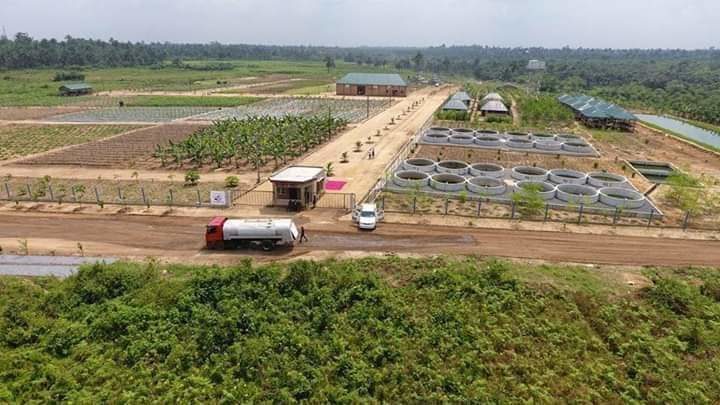
There are many farms—some thousands in Akwa Ibom State. It is estimated that about two thirds of the people in the State are farmers. Yet it can truthfully be said, that, of all these farms, Ibom Integrated Farms limited is outstandingly unique.
Location does not make it so. Situated in Awa Ndon, Onna Local Government Area of Akwa Ibom State, Ibom Integrated Farms which moved into site in December 2017 and inaugurated by the Akwa Ibom State Governor, Mr Udom Emmanuel on November 29, 2018 lies in a fertile farming area. And its size—42 hectres—is a prototype of Songhai Model Farm that consists of Livestock, Aquaculture, Crops, Eco- tourism and an Agricultural training centre.
Ibom Integrated Farm’s ability to produce exotic and indigenous vegetables like carrots, green beans, pepper, okra, tomatoes, lettuce, cabbage, cucumber, pumpkin with large plantation for plantain and cassava is not in itself unusual.
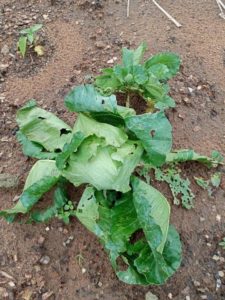
Its capacity to have over 180 mature pigs ready for sale within six months is not novel.
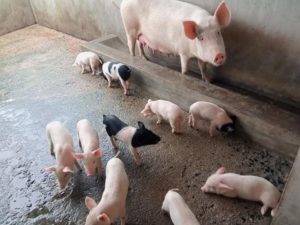
Neither is its excellent stride to produce over 10,000 pieces of mature tilapia and catfish every month. Nor are its 2500 broilers produced monthly, 5000 laying hens and over a thousand crate of eggs produced weekly in themselves outlandish. Many modern vegetable, piggery, aqua, chicken farms are much larger in size.
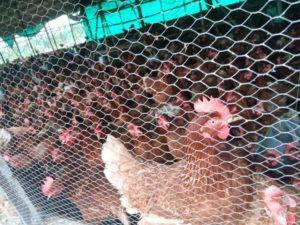
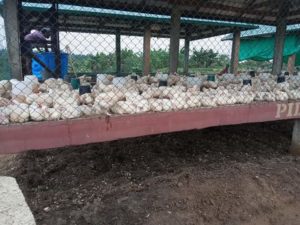
Unique in Diversity
Yet, in these days of specialization, is not this diversification unique? True, small farms often have quite a variety of animals. But do you know of another farm that raises such large numbers of different livestock in the entire State and perhaps Niger Delta? Ibom Integrated Farms is even blessed with large farm for Moringa plant and Acacia which are in high demand in the pharmaceutical industry.
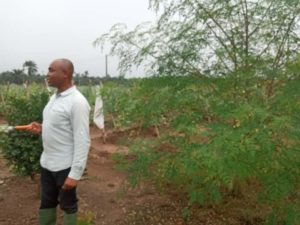
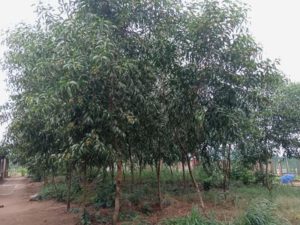
The diversification extends to fruits as well. Hundreds of acres are dedicated for fruit cultivation, particularly pineapples which mature in 10 months, budded oranges which bear fruits in less than three years, red royal breed of pawpaw which bear fruits within six months and high yielding cocoa. Another hundreds of acres is used for the cultivation of grasses which serve as medicinal supplements for the livestock and are further used in the preparation of organic manure. The farm also has within it a feed processing factory, barns, halls for training, board rooms among other buildings. Since the farm currently uses 10 hectares out of 42 hectares of her land for cultivation, the 32 hectares left play host to woods, palm trees even as Qua river flows within the farm.
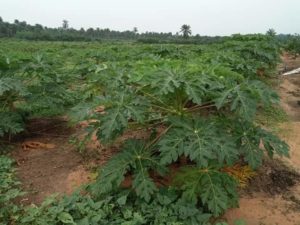
Unique In Self-Sufficiency
Ibom Integrated Farms is also unique in its ability to care for its own needs. Few large farms process their own manure. Many rely on chemical fertilizer. But according to the Farm Manger, Mr Fyneface Chikezie , Ibom Integrated Farms rely implicitly on organic manure which they produce in the farm. Besides, few large farms formulate their own livestock feed. Yet this one does, except for the fishes they produce. The farm has a feed mill that grinds and mix the livestock feed, and a series of grain bins with a storage capacity of large bushels of various feeds.
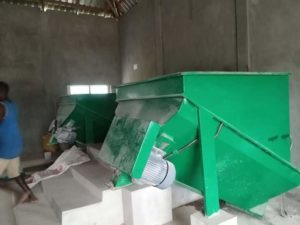
Interestingly, the farm does not produce for the farm’s consumption alone. It sells out to interested consumers. The farm manger adds ” The feeds we produce here are of higher quality concentrates. That is why by six weeks our chicken are fully matured. But for Local feeds you have to wait till eight weeks before they mature”.
Still more? The farm produces all kinds of fertile eggs, ranging from fishes to different kinds of birds. Chikezie notes that when they produce the fertile eggs, since they are yet to have the machine that hatches it, the patronize Akwa Prime Hatchery for their eggs to be hatched.
To assure a pure water supply, the farm has its own water purification plant; and to prevent pollution of the environment, the farm has a mechanism for turning unharmful wastes into feeds or manure. Available, too, is 30kVA generator that generates the farm’s own electricity should the commercial power source connected to the national grid fail.
Is it any wonder that Ibom Integrated Farms has been compared to a modern city, rather than simply a farm? But why is this farm so different? What is its purpose?
Established for a Unique Purpose
The purpose of most large farms is to make money for their owners. But the purpose for the establishment of Ibom Integrated Farms limited goes beyond profit making. The Chairman of Ibom Integrated Farms, HRM, Edidem Raymond Timothy Inyang who is also the Paramount Ruler of Onna, says that one of the primary reasons for the establishment of the farm is to affect the mindset of the local population by creating enterprise awareness within the community and in the process turn the area into what he described as a rural green city.
Edidem Inyang notes that Akwa Ibom state has not fully utilized her fertile land, climate and humans resources it has been blessed with hence the farm will awaken the consciousness of the people to the potentials yet untapped in the agricultural sector.
He adds ” The farm has a vision of replicating Songhai capacity in Nigeria by systematically transforming Agricultural practice through improved farming methods that deliver superior products in terms of quantity and quality.
“So far, Ibom Integrated Farms Limited has succeeded in combining local knowledge with the modern farming techniques from our strategic partners, Songhai farms of Benin Republic and collaborate with them to create the shift to new frontiers in organized operations in Agriculture.”
The Chairman of Ibom Integrated Farms offers insight to the fact that the farm depends on raw materials that can be sourced locally and skill workers that are available locally. What is more? The Farm Manger points out that another unique purpose of the Farm is to assist in providing quality yet affordable food for Akwa Ibom Community.
He explains ” The fish you buy at the rate of maybe N2000 at “point and kill”, you can get it here as cheap as N500.” Is it unbelievable to you that quality products can be provided these days at such a low cost? Another unique feature about the farm may be a factor to making it possible.
Motivated Work Force
The Farm Manger attributes the strides recorded in the farm to effective application of technology and most importantly the commitment of the 120 permanent staff of this farm. He notes that their commitment is not unconnected to the fact that they receive a good wage and also enjoy a good working environment. Chikezie says that the minimum monthly wage the least staff gets in the farm is N25, 000 while Supervisors are paid above N100,000. He also offers insight to the farm that there have been no cases of theft rather the host community have been supportive since they are also beneficiaries of the farm project. But how is work really done in the farm?
Modern Efficient Methods
When this reporter visited the farm recently, he was impressed by the size and efficiency of the farm operation. For example, in the poultry area, broilers are kept on net-like iron . The shed has a floor of slats with pits underneath for the droppings. This prevents them from having direct contact with their droppings. This, the farm manager says helps them against diseases, makes them clean and easy for their droppings to be harvested.
It was also observed that the farm has water leaf farm closer to the layers. The farm manger says they also feed the layers with it as it serves as a very nutritious source of vitamins for them. This, he notes helps them to lay more eggs and also reduce the cost of vitamin supplement for the layers.
Nevertheless, after the hens of one flock have laid eggs for a year, the period of their greatest productivity, the farm manger says they are butchered or sold out and replaced by another flock ready to lay. He explains the reason for this method is that after a year, the hen will still be laying but the farm will not cover up for the resources they use in their feed.
Very efficient, too, is the method waste water is regulated from the fish pond. Instead of wasting water from the 24 concrete pond, water is channeled there to a larger pond, when it sediments, it moves to a large earthen pond which is still utilized to produce fishes.
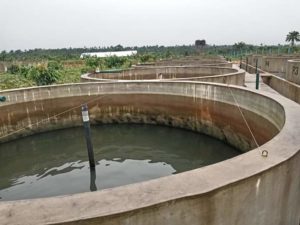
According to the farm manager, the earthen pond contains over a million fishes as they use it to breed tilapia and catfish. He however adds that catfish is bred there to help check the population of tilapia by eating the eggs and fries of tilapia thereby reducing the cost of feeding them. Besides the earthen pond is a local boat and dragnet used for fishing. But won’t dangerous reptiles like snakes also use the earthen pond as a breeding haven with the millions of fishes serving as their meal? The farm manager says keeping bitter kola nut around the pond has proven effective to check their trespass.
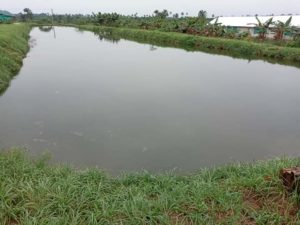
But that is not enough, water from the earthen pond which contains algae among other minerals is then channeled to irrigate the farm thus enriching the soil.
Efficient methods are also employed in raring pigs in the farm. Unlike most piggery which often emit offensive smell, one can visit the piggery of Ibom Integrated Farms and stay there comfortably without enduring obnoxious smell. The secret? They bath the pigs and its pen not less than twice a day. The farm management also ensures anyone who visits the piggery dips his shoes in a water which contains disinfectant. This, they say is to preserve the pigs against infection. As a result, the Farm Manger says their pigs have remained healthy. He adds ” we have removed the sharp canal teeth of our pigs, they can’t be dangerous again. And the most interesting thing is that there is no fat in the pigs. So, those who buy them, make huge profit. This breed births at least 12 piglets. By six months, they are mature but we start crossing them in eight months.”
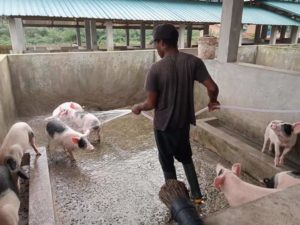
But of particular interest is the system where plastic mulching is used for growing crops especially pineapple. The benefit? The manager says it helps to reduce weed infestation, and lost of water form the surface of the soil is reduced. He adds “The plastic mulch can be reused. It last up to five years. Take for instance, to weed pineapple is not easy. During dry season, it prevents lost of water. It conserves cold which helps in the work of micro organisms in the soil”.
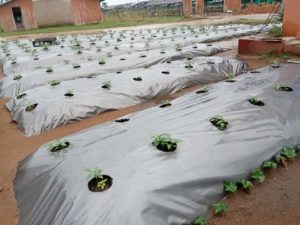
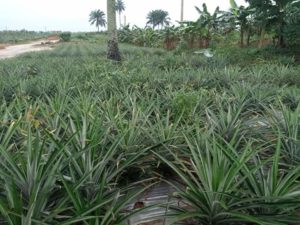
Modern efficient methods are also visible in the way a single plantain sucker is used to produce up to 50 other suckers for planting. What is more, the farm manager notes that their breed of plantain yields with heavy bunch within six months after planting.
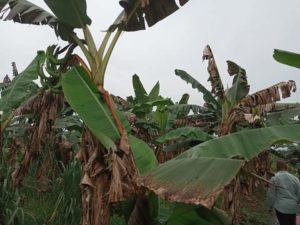
Also amazing is the fact that pawpaw, oranges among other fruits in the farm are low hanging. You simply do not need to climb anything before plugging them for consumption. But despite these strides, the farm still has challenges
Challenges facing Ibom Integrated Farms
The Farm Manger notes that the key challenge facing the farm is unavailability of off takers. He complains that since most of their produce especially vegetables and fruits are perishable, unavailability of off takers discourages the expansion of the farm.
He says ” It is sad that Akwa Ibom people are yet to grab the business opportunity available in this farm. Most of our customers come all the way from Port Harcourt to buy our products.
” The State Government can show interest and play the role of off takers for the public to benefit from this opportunity. We are ready to expand but key stakeholders must show interest and encourage the expansion. At the end, it is the State that will derive maximum benefit.”
READ ALSO: Three Industries in Governor Udom’s Hometown: Is it Justified?
Chikezie further adds that the State Government can partner the farm by providing tractors to encourage mechanized farming and most importantly sponsor Akwa Ibom people for training in the farm so that there can be a transfer of modern agricultural technology.
Truly a Unique Enterprise
Devoid of the few challenges, the strides recorded in the farm leaves no room for one to wonder why visitors are amazed by what they see at Ibom Integrated Farms limited. Clearly it is no ordinary farm. Its diversification of livestock and crops, its self-sufficiency in caring for its needs, its motivated and dedicated work force, and its purpose of triggering a new narrative in the agricultural sector of the State —all these things truly make Ibom Integrated Farms unique.
Why not plan a visit to the farm and see it for yourself? Perhaps you, too, will then voice the sentiments of one of the visitors, who said: “I marvel at what is taking place here. If this is encouraged and sustained, truly Akwa Ibom State will stand tall in the world of agriculture.”




